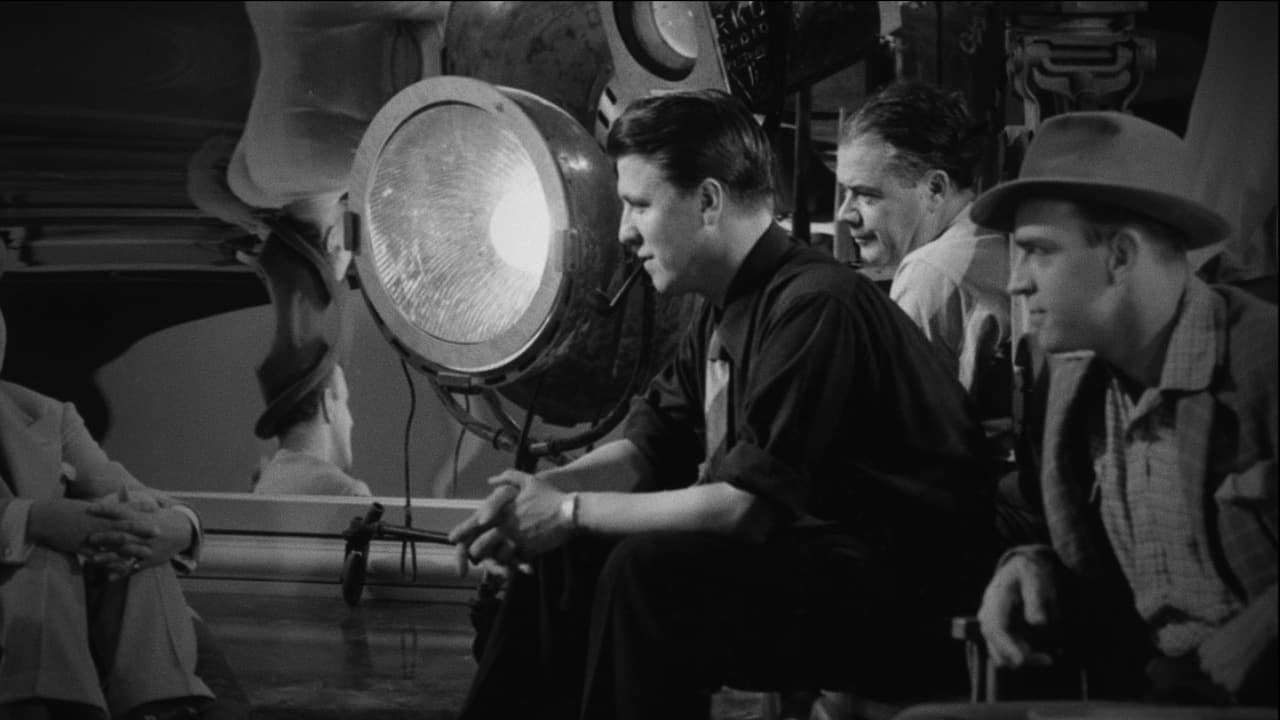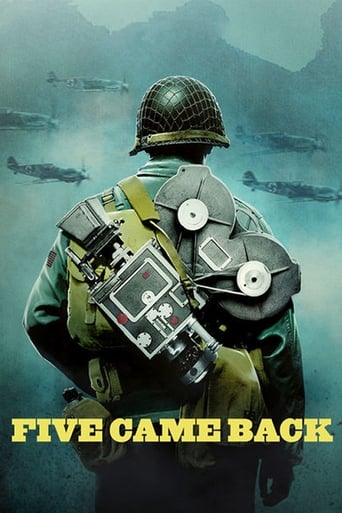

During World War 2 several movie directors joined the US armed forces, making documentary films of the war. These included five of the greatest directors, not just of that era, but of all time: Frank Capra, John Ford, John Huston, William Wyler and George Stevens. They had a great impact on the war, and the war had an impact on them, not only during the conflict but in their subsequent cinematic careers.Superb documentary series. The five directors covered in the series are legends of cinema. By the ends of their careers they would, between them, win 14 Oscars and be nominated 50 times (Capra 2 wins, 6 nominations, Ford 4/6, Huston 2/15, Wyler 3/14, Stevens 3/9). Between then they would ultimately direct six Best Picture Oscar winners (It Happened One Night, You Can't Take It With You, How Green Was My Valley, Mrs. Miniver, The Best Years Of Our Lives, Ben Hur).However, from 1942 to 1945 most of their time was spent helping the war effort, directing some brilliant, relevant and inspiring documentaries. These were not shot from behind a desk but out in the thick of it - Ford was wounded at the Battle of Midway, a cameraman of Wyler's was killed in aerial combat while filming The Memphis Belle and Wyler himself lost his hearing while filming the film Thunderbolt.This documentary series shows well how the five of them contributed, often having to fight and manipulate their own War Department to have their films released, or, at least, not tampered with. The personal sacrifices, mentioned previously are also well documented.Most emotionally, the effects of the war on the five of them are examined. They all came back changed men, including in their movie-making styles and careers. The interviews with five present-day directors - Francis Ford Coppola, Steven Spielberg, Paul Greengrass, Guillermo Del Toro and Laurence Kasdan - help frame the contributions of the five and translate their work for us to understand.Good narration by Meryl Streep, adding the right amount of gravitas to proceedings.Great documentary on five extraordinary film-makers. Makes for emotional watching for any lover of the silver screen.
... View MoreWhat I loved most is that this is the story of what men went through to capture moments of art, whether in the moment or staged (or, in a way, both at times), and the personal and professional tolls this took. My one small piece of trepidation going in to was that it could've been dry or that the talking heads - all major artists in Spielberg, del-Toro, Greengrass, Kasdan and Coppola - would make things sound more important than they were (the director usually does the bonus documentaries, usually not too bad, on DVD's). But this really emphasized the artistic trajectories and struggles and, in the third part, what happened when the war ended and how the men somehow got back on their feet to continue making their art (and 1946 was quite a year - LET THERE BE LIGHT, THE BEST YEARS OF OUR LIVES, IT'S A WONDERFUL LIFE), though never forgetting what had transpired, on the contrary it changed them in such a way that it made them even *more* empathetic and compassionate.Through the use of the interviews with these filmmakers, each sort of given their own director to talk about - there's some minor overlap here and there, but I think it's by design to keep each director set for their own guy, i.e. Coppola to Huston or Del Toro to Capra, for a purpose as, whether the director thought these guys were a match or each respective filmmaker had a passion for the one they discussed, it works as a framing device and to keep the stories and information moving forward (Spielberg on Wyler especially engrossed me and had the most personal details I thought), and through massive archival footage from these war movies as well as interviews with the old-time directors, we get a full sense of the journeys taken and the growth and tragedies witnessed. Lastly, their own backgrounds inform how they made their way through the wars, and what conflicts those posted. Astonishgly involving.It's more like a movie than just a regular series or even a Ken Burns thing; if you like seeing documentaries that are about the process of cinema, about storytelling, about how storytellers transform themselves and the world around them (whether it's D-Day or a ship like the Memphis Belle, or, unfortunately for Wyler and Stevens, the holocaust), it's one of those must-sees of the year. And now, as a movie buff, want to see ALL of the movies I haven't seen talked about here, particularly Mrs. Miniver, They Were Expendable, and The Battle of San Pietro.
... View MoreI have never seen any film made by those five directors, and right now I really want to dive into their films especially the ones made after the war.The documentary shocked me with the cruelty of war and the terrible aftermath and moved me with the engagement of the directors.
... View MoreI am an AVID WW2 history buff. I've watched countless documentaries on the subject over the years, but this one is truly breathtaking. Told from such a different perspective than I've ever seen before. What starts out at first glance as a film about filmmaking, it becomes SO much more. Delving into how the war had deep and profound effects on the 5 directors. Absolutely riveting, heartfelt, heart-wrenching and utterly breathtaking. Loved it.Hopefully Spielberg will now concentrate on "The Mighty Eighth"!
... View More